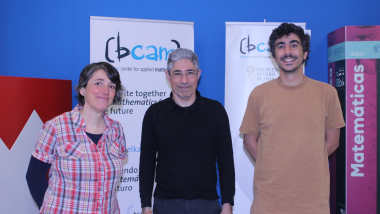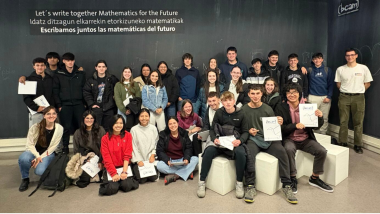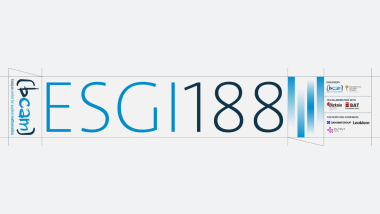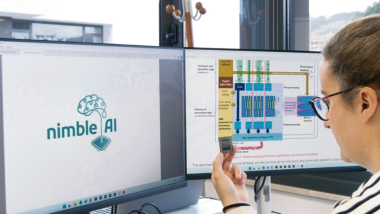Giulio Bonifazi will defend his thesis on the 19th of December
- The defense will take place in the Lecture Hall of the Faculty of Medicine and Nursing at the University of the Basque Country (UPV/EHU) in Leioa
Giulio Bonifazi earned his Bachelor's (2015) and Master's (2018) degrees in Mathematical Engineering from Politecnico di Milano (Milan, Italy). In 2019, he joined BCAM, where he embarked on a Ph.D. project on the computational modeling of biomarkers associated with Alzheimer's disease.
His thesis, "Modeling astrocytic biomarkers in the onset and progression of Alzheimer’s disease", is under the expert guidance of Maurizio De Pittà (BCAM) and Elena Alberdi (Achucarro Basque Center for Neuroscience)
Giulio will defend his Ph.D. thesis on December 19th at 10:30 at the "Salón de Grados" of the Faculty of Medicine and Nursing, University of the Basque Country (UPV/EHU) in Leioa.
On behalf of all BCAM members, we would like to wish Giulio the best of luck in his upcoming thesis defense.
Abstract
Alzheimer's disease (AD) remains a complex and multifaceted puzzle, with a sequence of biological events preceding the emergence of clinical symptoms. Traditional biomarkers fall short in defining this preclinical phase, highlighting the importance of exploring genetic, molecular, cellular, and demographic factors that shape AD trajectories. Recent findings suggest a potential link between amyloid-β (Aβ) – a hallmark of Alzheimer's pathology – and neuronal hyperactivity in early AD stages. This link may be mediated by Aβ-induced alterations in glutamate uptake by astrocytes, prominent glial cells in the brain involved in AD development. Within this framework, the thesis investigates the role of astrocytes during AD onset and progression. To this end, first, we create a bioinformatics pipeline to extract astrocyte-specific gene expression from RNA sequencing data across disease stages. This analysis reveals sex and regional variations in AD trajectories. We then explore the molecular pathways leading to hyperactivity by modeling the interplay between glutamate-mediated neuronal activity, Aβ-dependent glutamate uptake, and activity-dependent Aβ production. This intricate interaction results in various AD trajectories characterized by hyperactivity. Lastly, we integrate genetic, molecular, and cellular insights to identify potential risk factors for hyperactivity. We build a computational model of glutamate transporter dynamics based on astrocyte gene activity during AD and transporter expression in mouse experiments. This model uncovers stage-dependent modulation of transporter-related mechanisms by Aβ, emphasizing the dynamic nature of molecular and cellular correlates along AD trajectories. By studying the role of astrocytes in defining AD trajectories, this thesis aims to enhance our understanding of the disease and offer insights for diagnosis and therapeutic interventions.
Related news
About the center
About the center




